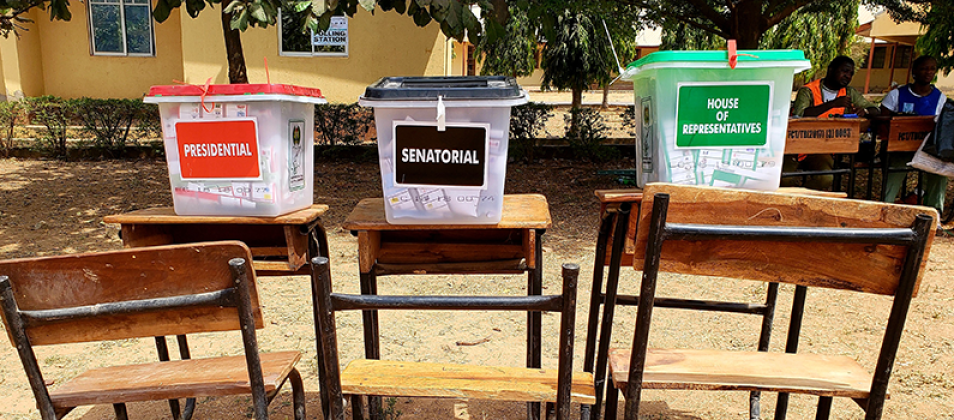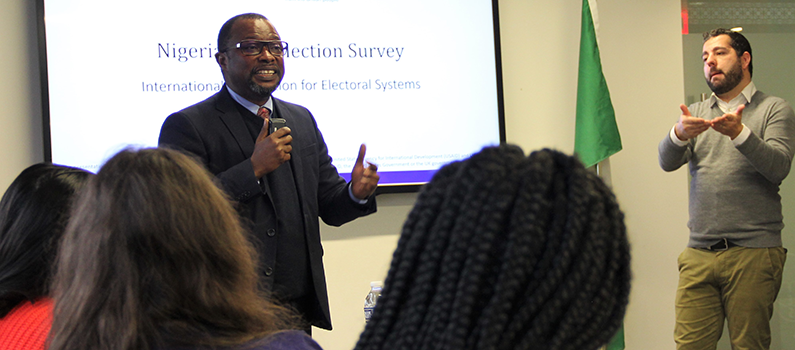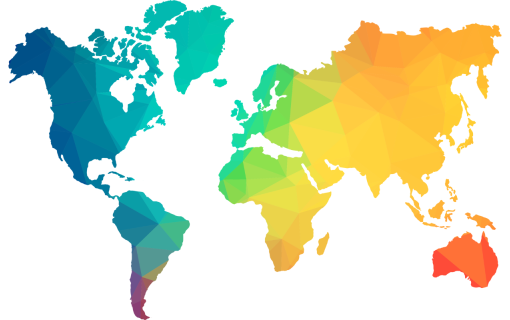
2019 Post-Election Survey in Nigeria
In 2019, the International Foundation for Electoral Systems (IFES) conducted a nationwide public opinion survey to examine perceptions of the integrity of Nigeria’s 2019 elections, the electoral process and Nigerian citizens’ Election Day experiences. The public opinion survey also measured awareness of and trust in the election management body – the Independent National Electoral Commission – exposure to voter education and information campaigns and knowledge of electoral procedures.
On December 10, 2019, IFES publicly presented the survey findings at an event moderated by IFES Regional Director for Africa Rushdi Nackerdien. The event featured presentations by IFES Director of Monitoring and Evaluation and Public Opinion Research Rakesh Sharma on the survey findings and IFES Deputy Country Director for Nigeria Seray Jah, who contextualized the survey data.
One interesting finding discussed at the event is that respondents did not identify the one-week postponement of the 2019 elections only four hours before the scheduled opening of the polls as a main weakness of the electoral process: 88 percent indicated they were still able to vote in the election despite the delay. This finding contrasted with a common narrative that electoral delays greatly impact voters’ ability to fully participate on Election Day.
...respondents did not identify the one-week postponement of the 2019 elections only four hours before the scheduled opening of the polls as a main weakness of the electoral process: 88 percent indicated they were still able to vote in the election despite the delay.
Discussion during the event also touched on the negative trend in multiple survey questions on the perceptions of democracy from the high level of satisfaction with democracy determined via IFES’ 2015 post-election survey data in comparison to IFES’ 2019 post-election survey data. For example, on a question about the perceived level of fairness in the presidential election, 64 percent of respondents indicated that they strongly or somewhat agreed that the 2019 election was free and fair. While well over half showed a fairly positive perception of democracy in Nigeria, it is 21 percent below what respondents reported in IFES' 2015 post-election survey, indicating a significant decrease. However, the event contextualized the reported drop in perception of fairness to the electoral experiences of Nigeria in 2015 and 2019. In 2015, Nigeria experienced its first democratic transfer of power from an incumbent to an opposition party. Sharma noted that IFES’ public opinion survey results from around the world indicate a similar pattern, where transfers of political power tend to result in higher levels of reported positive perceptions of fairness and satisfaction with democracy when compared to electoral events where an incumbent retains his or her seat.
See the presentation slides for more details on the survey results.
The survey was made possible through the support of the United States Agency for International Development and UK aid. Data for the survey was collected in July and August 2019 from a nationally representative sample size of 2,736 respondents aged 18 years or older from all 36 Nigerian states and the capital of Abuja. The survey was stratified by urban and rural settlements and Nigeria’s six geopolitical zones using probability proportionate to size sampling techniques.










